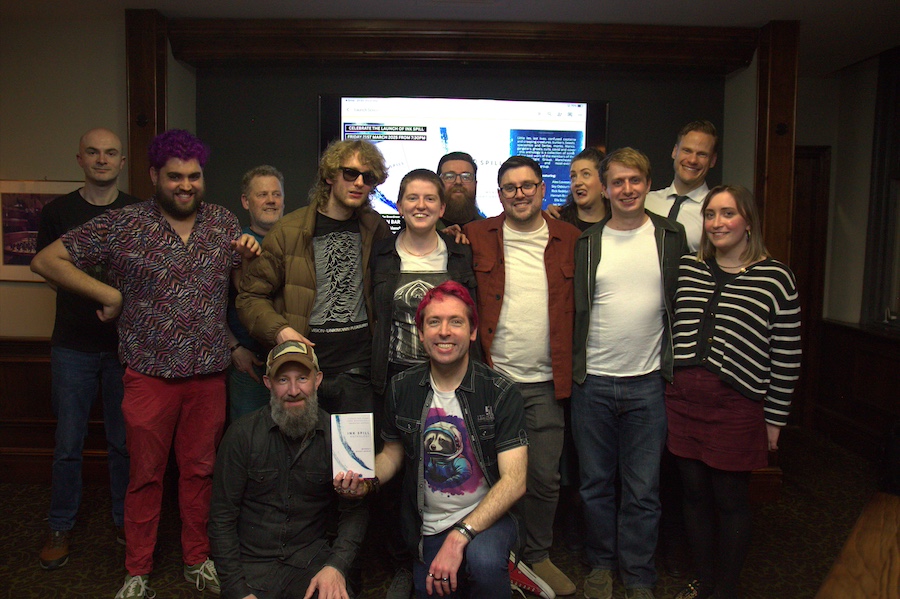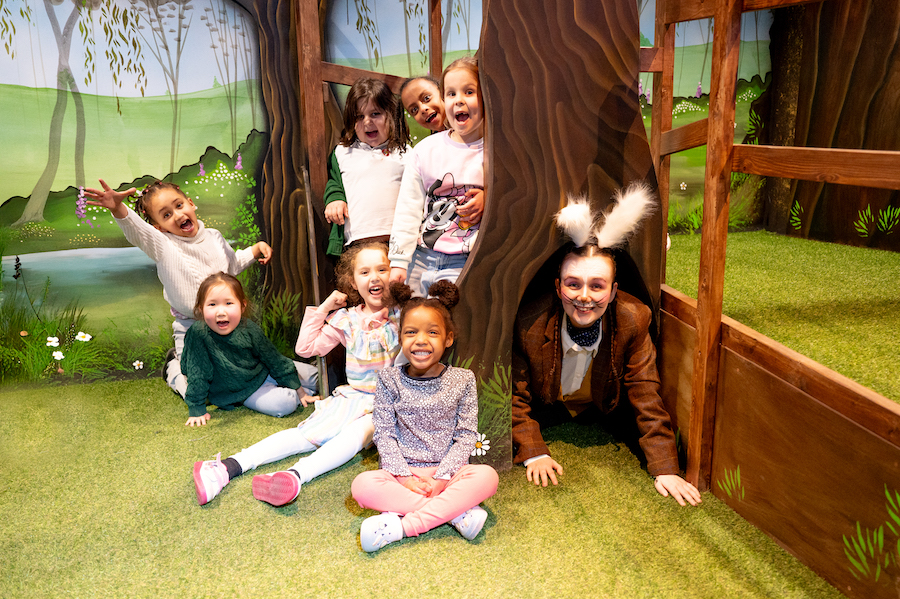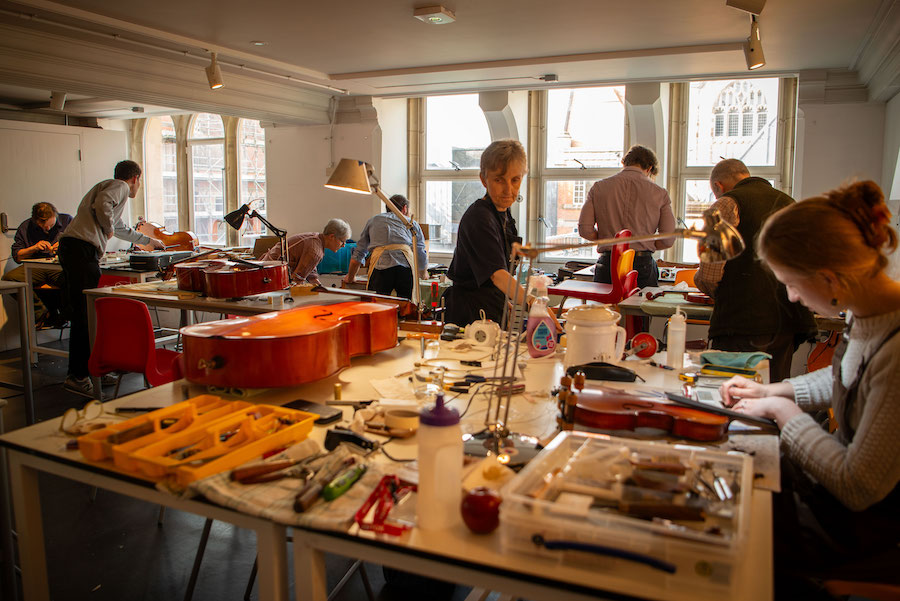“We all share this planet, and sustainable choices in fashion is all of our responsibility”
- Written by Hannah Beaumont-Laurencia
- Last updated 2 years ago
- Fashion & Beauty
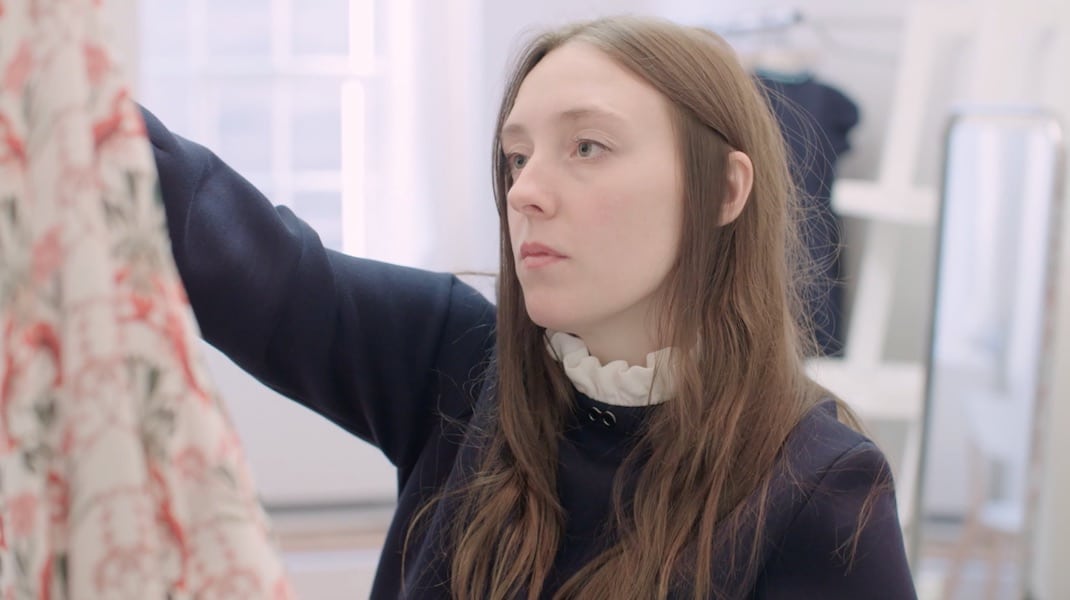
In 2008, I launched the sustainable clothing brand Beaumont Organic from my parent’s spare bedroom in Stockport.
Now, 15 years on, the brand’s roots remain the same and are more relevant than ever – to source and create a collection with complete transparency from the field to consumer and, whilst doing so, to use only the best organic and sustainable fabrics, with the aim of causing
absolute minimal impact on the environment, animals, and people.
What I have learnt through the years though is that the fashion industry needs more than just a handful of brands doing things for good.
It needs people and brands to step up and make a difference, educate, and empower consumers to use their money for good.
I was therefore really excited to come across a brand-new thought-provoking independent documentary called Fashion Reimagined, a film aiming to demonstrate the challenges in fashion when pursuing a sustainable journey and the overwhelming impact of fashion on planet earth.
This led me to head down to HOME theatre on Friday to understand in more detail what it was all about…. and it didn’t disappoint.
Fashion Reimagined follows Lancastrian Amy Powney, creative director of Mother of Pearl on her journey to create the brand’s first sustainable collection.
Not giving anything else away as you have to go and watch it for yourself, but it is amazing to know this was all led by an inspiring female northerner on a mission to do fashion justice.
The documentary is a must-watch for everyone!
I spoke to Amy Powney on Fashion Reimagined and how the industry and consumers can become more sustainable.
Can you give us a glimpse of what the documentary is about and who is it for?
The documentary is about my mission to create a fully sustainable collection for Mother of Pearl, called No Frills.
Created by the incredible Becky Hutner it follows me and my Brand Manager Chloe Marks as we try to get to the bottom of the supply chain so we can produce a collection which is organic, traceable, socially responsible, considerate of animal welfare, uses minimal water and chemicals and is produced in the smallest geographical region possible.
We had to get down onto the ground for ourselves and see first-hand what it takes to piece this huge puzzle together. It was not easy. The fashion industry is a system which simply does not allow itself to be naturally transparent and so we had to do that on our own through
sheer determination and hard work. We often hit roadblocks, but I was adamant that if I could not make Mother of Pearl a sustainable brand which was grounded in its ethics and offered full transparency, then I would not do it.
So, the documentary is really for anyone who wears or makes clothes. I don’t think consumers know what it takes to make their clothing or that, quite often, their clothes are more well travelled than they are before they land in their closet. So hopefully it will be informative and encourage people to rethink their approach to their wardrobes or how they produce things.
How did the documentary come about?
When I won the Vogue Fashion Fund back in 2017, I pledged to use it to create No Frills, our first fully sustainable collection. Becky was filming the interviews with the winners and runners-up.
She approached me then and there and we realised we had a shared passion for sustainability and that this could become something bigger.
She had been on her own personal sustainability journey in her life and I think she felt like she just had to document this process.
What was your favourite part of the documentary filming process?
I think it is how Becky has captured the personal side of my story.
Supply chains can be a very boring topic but how she wove in my background and upbringing made it more moving.
If the caravan kid can do something, so can everyone. My favourite quote and what I live my life by is: “I always wondered why someone didn’t do something about that, then I realised I was somebody.”
I think it is also nice that my children can look back on this when they are older and see what I was like when I was younger, what drove me and show them that I fought to make the planet a better place for them.
Do you think it is the responsibility of the consumers, the brands or the government to enable fashion to have a more sustainable future?
I think it’s everyone’s responsibility, we all live on this planet, and we all consume in one way or another.
I hope it opens the eyes of the consumer and encourages them to ask questions, to demand more from the brands they shop from, across all areas from fashion, to furniture, to food.
I hope that they are inspired to make better and more informed choices. If I can change one person’s mindset, then the work we do and the film have succeeded.
Secondly, I hope it is the starting point on a very long road to change at a legislative level.
I’m fully aware that what we have done, and one film is not going to change an entire industry but we’re at a point, with the climate crisis, that change may come too late.
Difficult decisions need to be made now to ensure we are regulating the industry to take into account its impact on the planet and its people.
The EU and the US seem to be making some good steps forward, but the UK is falling behind.
I also think that brands and businesses which are truly trying to work in green and ethically sound ways should be given support at a business level, and incentives to continue to do what they are doing.
This should not just be particular to the fashion industry but across all creative and manufacturing industries. Businesses need to be encouraged to make the right choices and that comes from a legislative and government policy approach.
How feasible do you think it is for a well-established non-sustainable fashion brand to pivot to sustainable?
We’re a small brand and if we can do it, anyone can do it. These bigger brands have more money, more buying power and more resources available to make these changes if they want to, it comes down to their desire to change.
One of the biggest challenges we now face is greenwashing, it is endemic in the system today and brands use this to confuse the customer and exaggerate their sustainability credentials.
I’d like to see ‘transparency’ become the main vocabulary and an industry where brands are open and honest about their journey. Where they give a real insight into the progress they have made and where they want to improve, putting knowledge and choice back into the consumer’s hands.
Fashion Reimagined is showing in Manchester’s HOME theatre from 3 rd to 9 th March and up other UK and Irish cinemas throughout March.
You can get tickets by clicking here.
Will be available on Sky Documentaries and streaming service NOW from 9th April.
Hannah is also doing a live interview with Amy at 13:00 on Wednesday 8 th March on Instagram so stay tunes for that if you would like to hear more: @hannahbeaumontlaurencia
- This article was last updated 2 years ago.
- It was first published on 6 March 2023 and is subject to be updated from time to time. Please refresh or return to see the latest version.
Did we miss something? Let us know: press@ilovemanchester.com
Want to be the first to receive all the latest news stories, what’s on and events from the heart of Manchester? Sign up here.
Manchester is a successful city, but many people suffer. I Love Manchester helps raise awareness and funds to help improve the lives and prospects of people across Greater Manchester – and we can’t do it without your help. So please support us with what you can so we can continue to spread the love. Thank you in advance!
An email you’ll love. Subscribe to our newsletter to get the latest news stories delivered direct to your inbox.
Got a story worth sharing?
What’s the story? We are all ears when it comes to positive news and inspiring stories. You can send story ideas to press@ilovemanchester.com
While we can’t guarantee to publish everything, we will always consider any enquiry or idea that promotes:
- Independent new openings
- Human interest
- Not-for-profit organisations
- Community Interest Companies (CiCs) and projects
- Charities and charitable initiatives
- Affordability and offers saving people over 20%
For anything else, don’t hesitate to get in touch with us about advertorials (from £350+VAT) and advertising opportunities: advertise@ilovemanchester.com
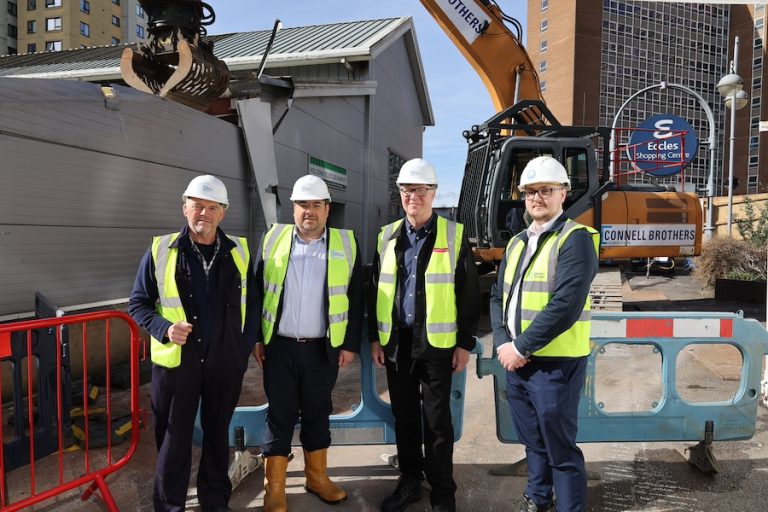
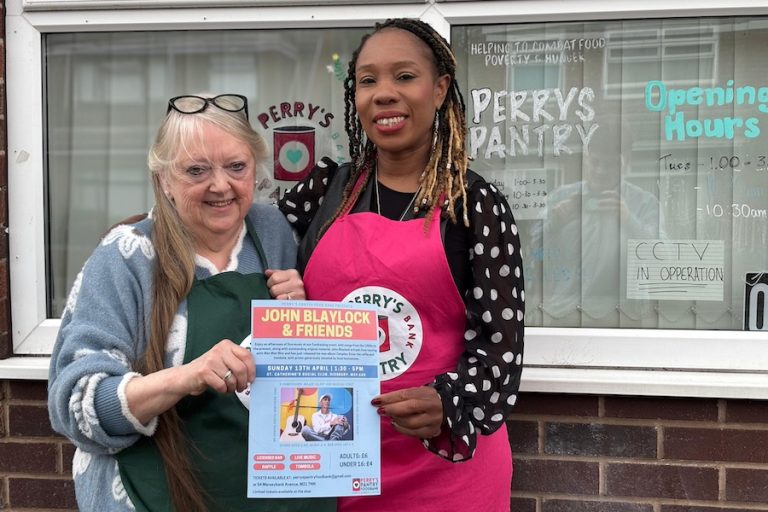
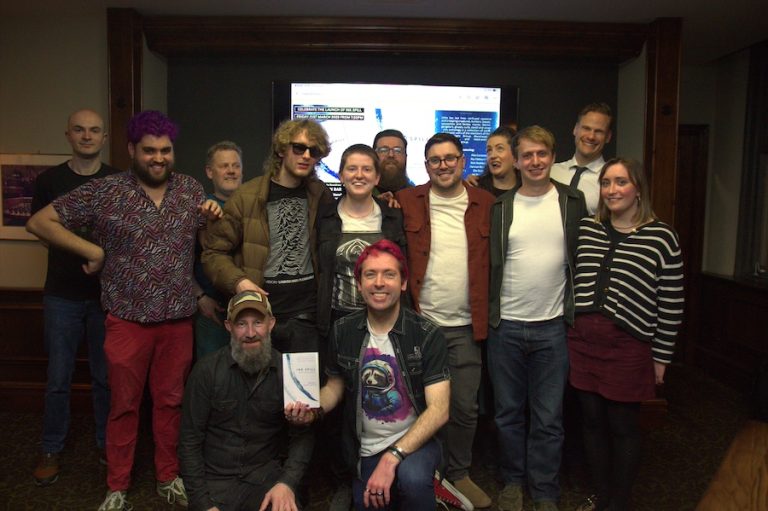
The eclectic group that’s been helping writers cut their teeth for 50 years

Manchester and Los Angeles prove that opposites really do attract

“His presence will be deeply missed” Children’s hospice bids farewell to their visionary CEO







